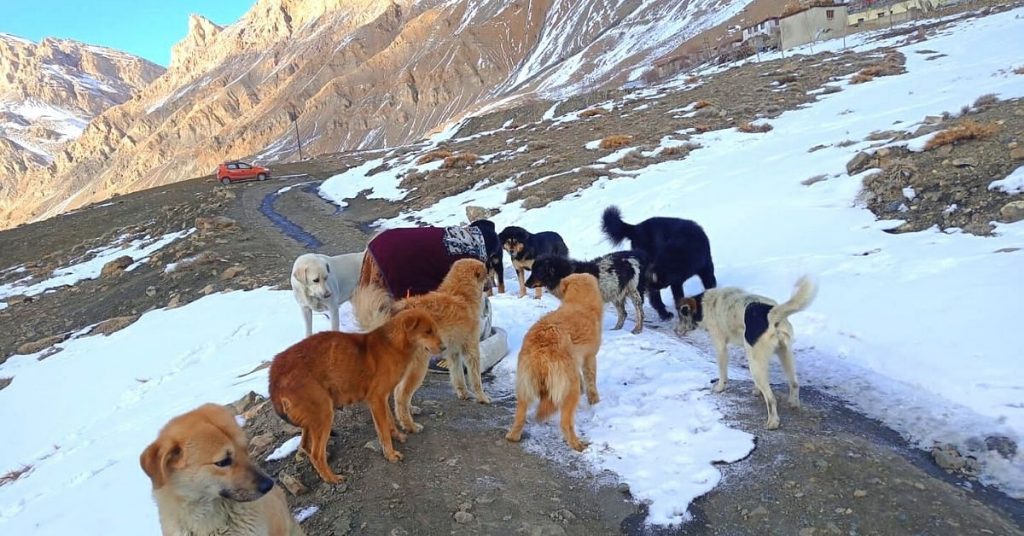On 5 December 2021, animal rescue and awareness non-profit Peepal Farm started a programme to feed stray dogs. This was after seeing the state the dogs were left in due to starvation and brutal winters in Spiti Valley.
The organisation, which is based out of Dhanotu village near Dharamshala, Himachal Pradesh, has been running the ‘Spiti Dog Feeding Winter Program’ for the last three months. With this, they feed about 300-400 dogs every day, with assistance from 12 local women workers spread across six villages — Chicham, Kibber, Khurik, Rangrik, Ladang, and Kaza.
These women, backed by complete material and financial support from Peepal Farm, cook more than 50-60 kg of food every day. The programme is expected to continue till the end of April 2022, following which they will embark on a sterilisation programme.
The gruelling long winters, when temperatures drop down to -20 to -30 degrees Celsius, have led to dogs killing and eating other dogs, as well as the loss of precious livestock and endangered wildlife like the Blue Sheep and Ibex. This, in turn, has resulted in extensive man-animal conflict.
Narinder Rana, a resident of Kaza and follower of Peepal Farm, feeds puppies regularly. He recalls, “Earlier, people had a lot of livestock. Now they have reduced the number in their possession because dogs started to attack them. There’s a lot of wildlife in Spiti. These dogs would even hunt the Blue Sheep and Ibex. Back in 2014, due to heavy snowfall, the Ibex would get stuck in the snow, and a pack of dogs would catch them.”
“Last year, following the monsoon season in September, Wangchuk Dolma (a.k.a. Usha), a resident of Kaza who runs a bakery, visited Peepal Farm along with her brother Kalzang (a resident of Khurik), and son Tenzin. They spoke to us about the horrific plight of these stray dogs and asked whether Peepal Farm could do something about it. In September, I needed to take a vacation. So, my wife Shivani and I left for Spiti for a holiday, and also to ascertain the ground realities of this problem,” Robin Singh, who co-founded Peepal Farm alongside Shivani in 2014, tells The Better India.
Upon arriving, Robin immediately recognised the problem. After extensive preparation, they started this stray dog feeding programme in Khurik and Kaza. In Khurik, they hired Kalzang’s wife, Losang, to cook food for dogs and assist with the feeding programme.
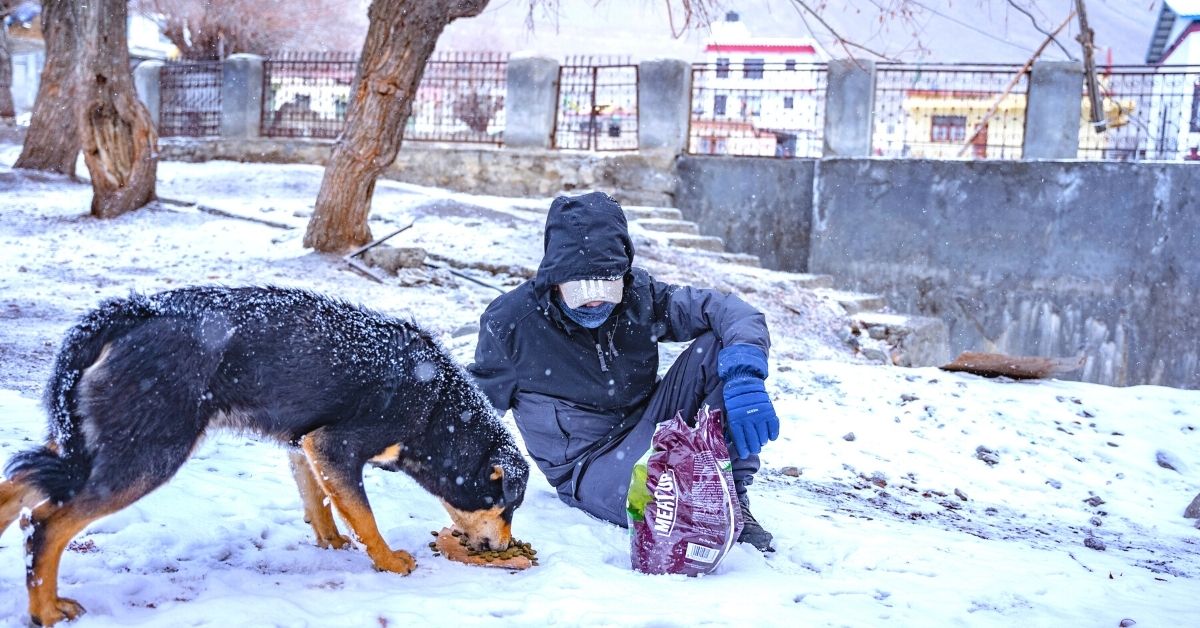
Removing misconceptions
“Stray dogs don’t cause problems during the summer. But in the winters, when there’s not enough food for them, they end up eating each other because of starvation and the cold. Dogs also become very irritable during this time and end up eating anything they find. If someone’s door is open, they steal food from the house as well. They also attack livestock. People tell us to not feed dogs because they bite, but I feel if we feed them, they won’t bite. If they get fed in the winters, then they stay very calm,” says Kalzang, in a video shot by the Peepal Farm team.
In Kaza, Chunit Dolma (a local resident) hired six women to start cooking food for the dogs. Following Khurik, the Peepal team proceeded to Rangrik, Ladang, Chicham and eventually Kibber, where they hired locals to cook food for the dogs.
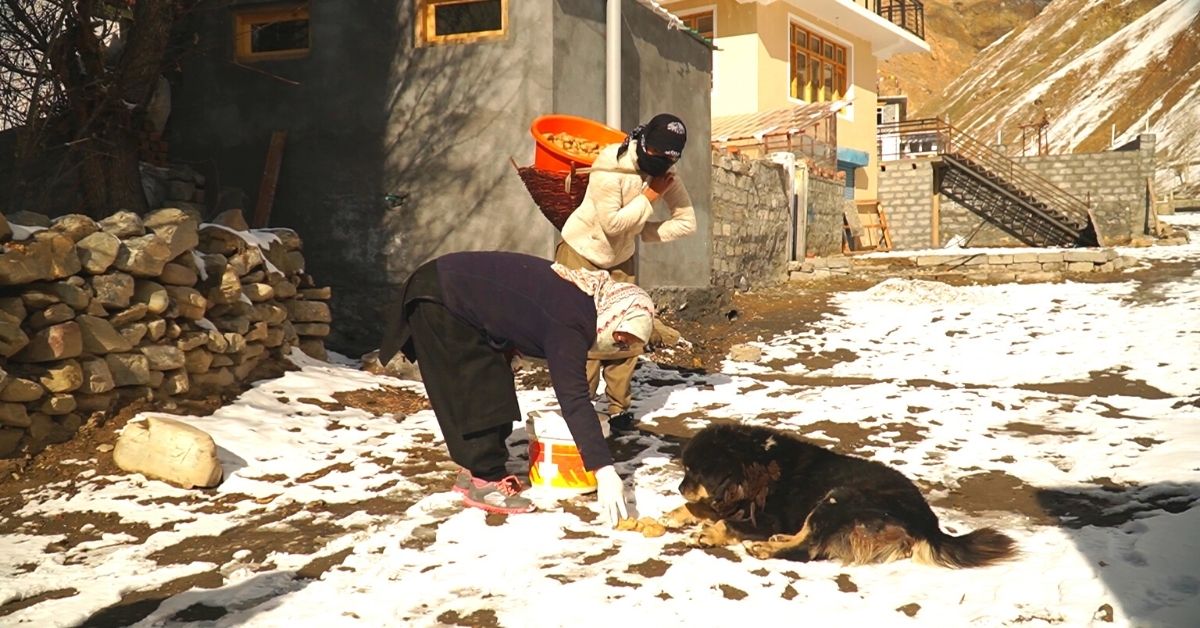
“The food we feed the dogs includes kibble. People either donate money to buy large packets from Shimla, or buy the material themselves and donate to us. These packets are distributed from our farm through visitors, tourists, and volunteers to the six villages in Spiti Valley. Today, for example, a few tourists are helping us transport three big packets, weighing about 30 kg each. Through the donations, we are paying the women Rs 3,000 per month. We also pay for cooking gas and packets of wheat flour sourced locally. So far, we have spent over approximately Rs 1.20 lakh in this programme,” claims Robin.
With flour arranged by local residents (which Peepal Farm pays for), the recipe is very simple. The women knead the dough, mix the kibble with it, make dough balls, boil it in water and cook. In Kaza, for example, a team of six women divide themselves into groups of two. They carry the food in the traditional baskets and distribute the food in their respective zones.
“We have to start by throwing the food to feed them because they are scared of humans. Also, the chances of them fighting are less if we feed them separately. Dogs are extremely territorial, and that’s why you shouldn’t move them. Moving them is also illegal as per law,” says Robin.
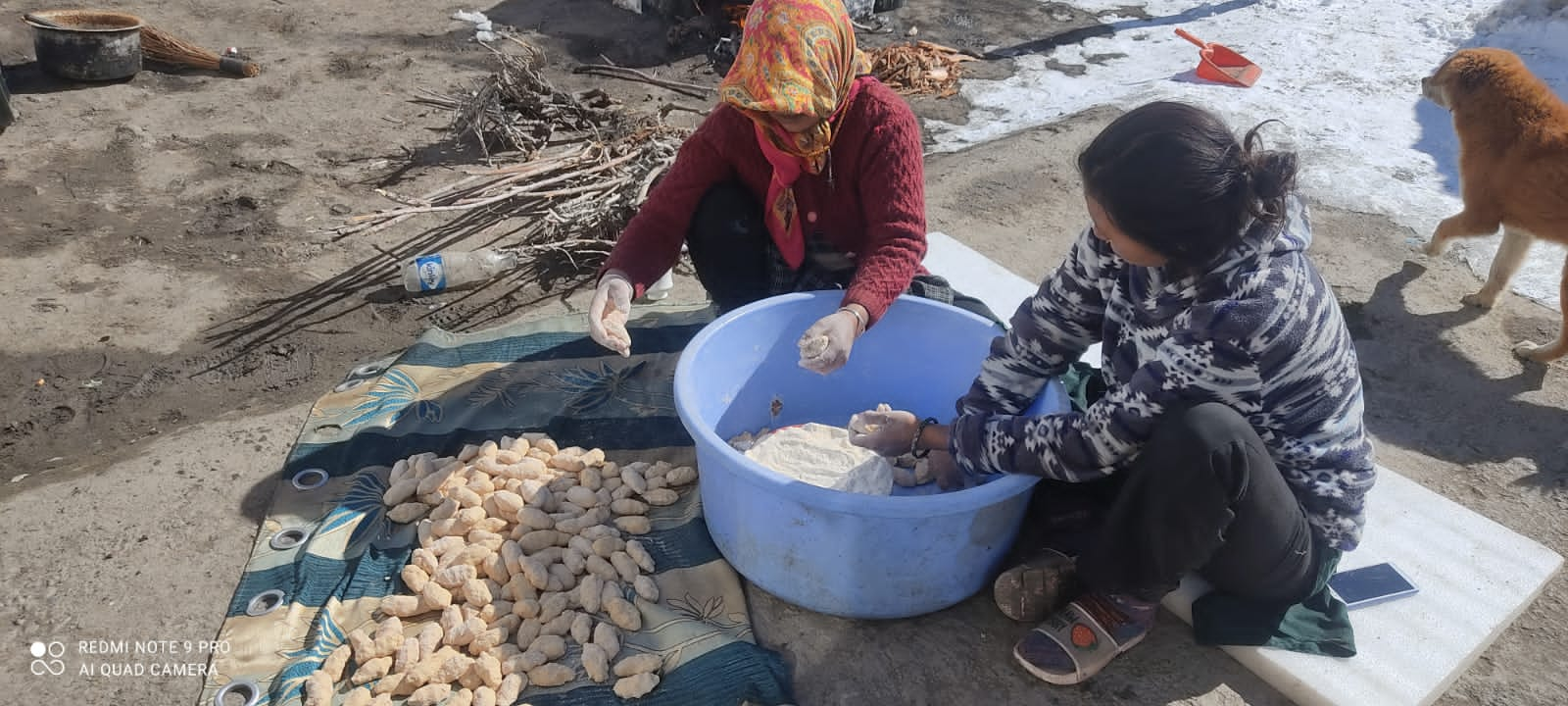
Why feed stray dogs?
During the course of our conversation, Robin expressed his displeasure with the term ‘feral’ given to these dogs. He believes the term, for a lack of a better word, dehumanises them. “These are regular stray dogs whose hunger has forced them to act in certain ways,” he says.
He also believes that the dog feeding programme is the first step towards addressing the problem of hungry stray dogs and rising man-animal conflict, which concludes with sterilisation.
“The idea is to first keep them alive. Once they grow friendly, it becomes easier to catch and sterilise them. That is the only way to approach this problem. The notion that feeding these dogs causes more problems is not based on ground realities. Some people claim that feeding dogs will increase their population. They’ve diagnosed the problem incorrectly,” says Robin.
The problem, he believes, begins in the summer season when hordes of tourists arrive. Their arrival causes an increase in food supply given how much is wasted by tourists. This is what results in the explosion of the stray dog population. “During winters, the supply of food for these dogs dwindles to zero, and the overpopulated stray dog population suffers,” he says.
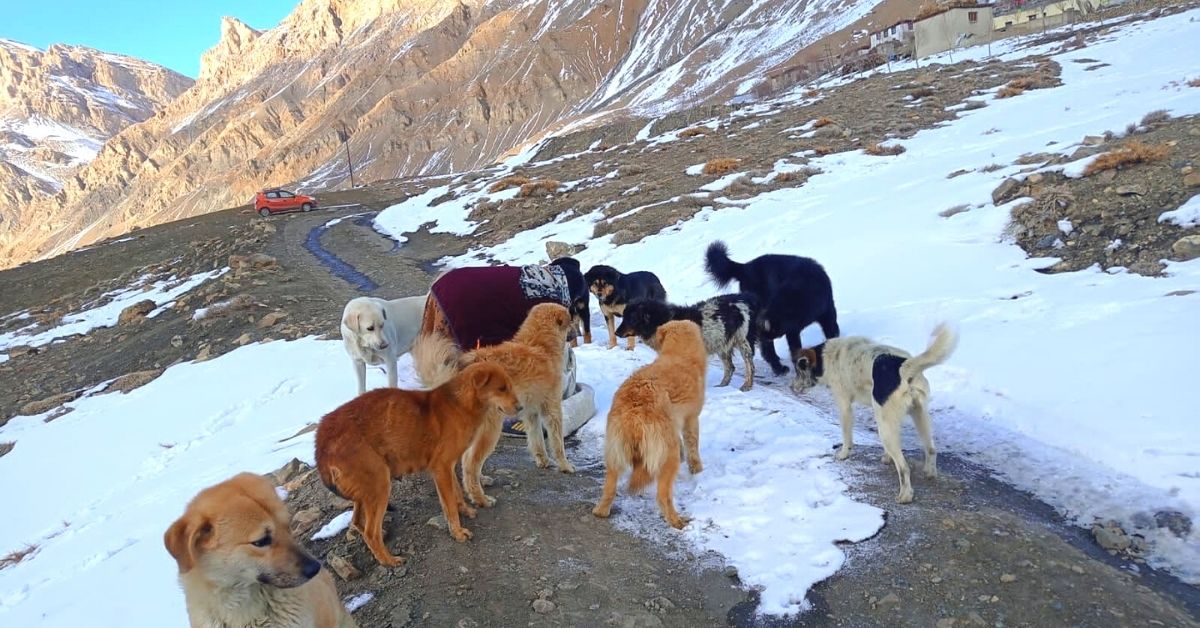
Culling dogs or letting them starve is not the solution. The answer, Robin believes, is empathy. “Thanks to our feeding programme, where once the stray dogs were scared of us, they are now friendly. The second phase of our initiative will be directed towards sterilising them, after villagers sow their wheat crop,” he says, adding that this will be done in collaboration with local authorities.
“What’s more important is the support of the local people, which we already have. We will supply the vets and other equipment for this programme. It’ll be better if we get the support of local authorities, but if not, we’re proceeding with it one way or another. The problem with government-sponsored mass sterilisation programmes is the shoddy post-op care given to dogs following the procedure. That’s when you see dogs with their intestines hanging out following the procedure. Many times, they don’t witness the recovery of dogs following surgery, and let them go back to their locations immediately. We don’t want to do that,” he says.

